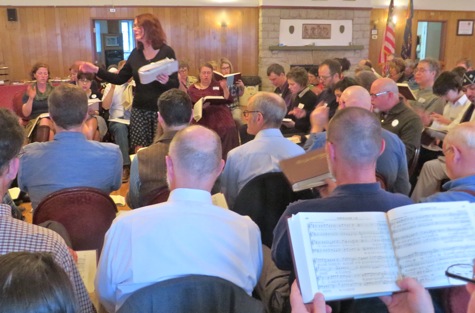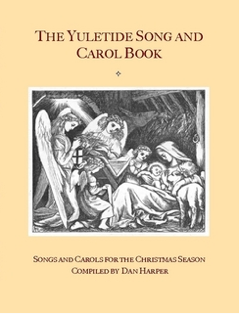
The view from the bass section as a singer from Bremen, Germany, (alas, I didn’t catch her name) named Eva led well over a hundred singers at a Sacred Harp singing convention this past weekend.
What was it like singing with all those people, you ask? I’ll limit myself to the physiological response. With something over thirty singers in the bass section, I could feel my whole body vibrating to the lower notes. And since this is highly rhythmic music, we could also spend time talking about entrainment from an ethnomusicological perspective.
This, by the way, is why you might want to improve congregational singing so that it’s good, rhythmic, and loud — because when you do that, it feels really good.


